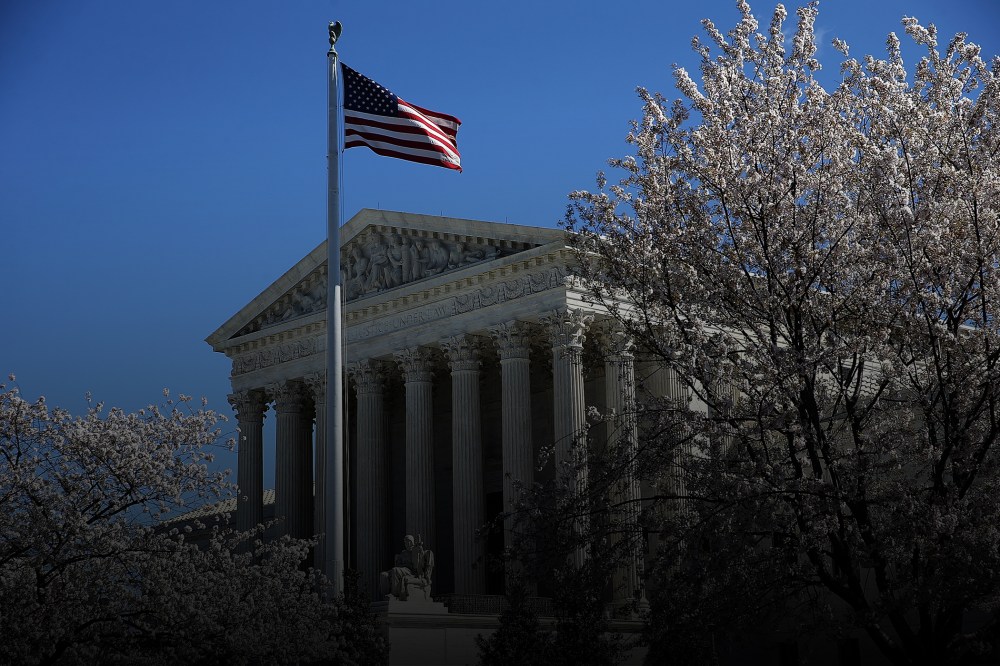The U.S. Supreme Court appeared divided Monday on an issue hotly contested in the presidential campaign — a potential blow for the White House in the battle over President Obama’s immigration policy that could shield more than four million people from deportation.
As justices peppered a lawyer for the Obama administration, it became clear that the court was split. The prospect of a 4-4 tie would mean a loss for the administration because it would leave a lower court order in place.
Lower courts have blocked its implementation since the president announced it a year and a half ago. A win would allow him to begin enforcing the measure before leaving office.
Adults in the United States illegally could remain if they meet certain residency requirements and have children who are American citizens or lawful permanent residents. It would also expand another program, now in effect, that allows young people to stay in the country if they were brought to the U.S. under age 16.
Led by Texas, 26 states claim the president had no power to order the changes, and they have so far prevailed. Supreme Court Justice Antonin Scalia’s death has deprived them of one likely high court ally. But if the case ends in a 4-4 tie, the legal hold on the program would remain in place — a defeat for the administration.
With 11 million undocumented migrants living in the U.S., the administration argues it’s impossible to deport everyone who’s here illegally. The policy is based on setting priorities — concentrating on criminals and terrorists and deferring removal for others who have established ties to the U.S.
“You can come out of the shadows and get right with the law. That’s what this deal is,” President Obama said in unveiling the plan.
His policy would not offer permanent legal status, but it would defer for three years any effort to seek deportation for those qualified. The government argues that there’s nothing new about such a move, citing similar accommodations given to undocumented Cubans after the Castro revolution, undocumented spouses and children of legal immigrants two decades ago, and foreign students affected by Hurricane Katrina.
And because those allowed to remain need some way to make ends meet, they would be eligible to seek work permits. “Work authorization has long been tied to the exercise of this kind of discretion,” says the Justice Department.
Some of the court’s conservatives may be receptive to the administration’s argument. In a 2012 case, Justice Anthony Kennedy said federal immigration officials have broad discretion in deciding who should be deported and who should be allowed to stay.
“Discretion in the enforcement of immigration law embraces immediate human concerns. Unauthorized workers trying to support their families, for example, likely pose less danger than alien smugglers or aliens who commit a serious crime,” he wrote.
The government also urges the court to rule that the states have no legal standing to sue over the policy, because immigration has long been the province of the federal government and because the states aren’t required or forbidden to do anything under the program.
RELATED: Detaining immigrant kids hasn’t worked — US wants to try something new
Pete Williams











